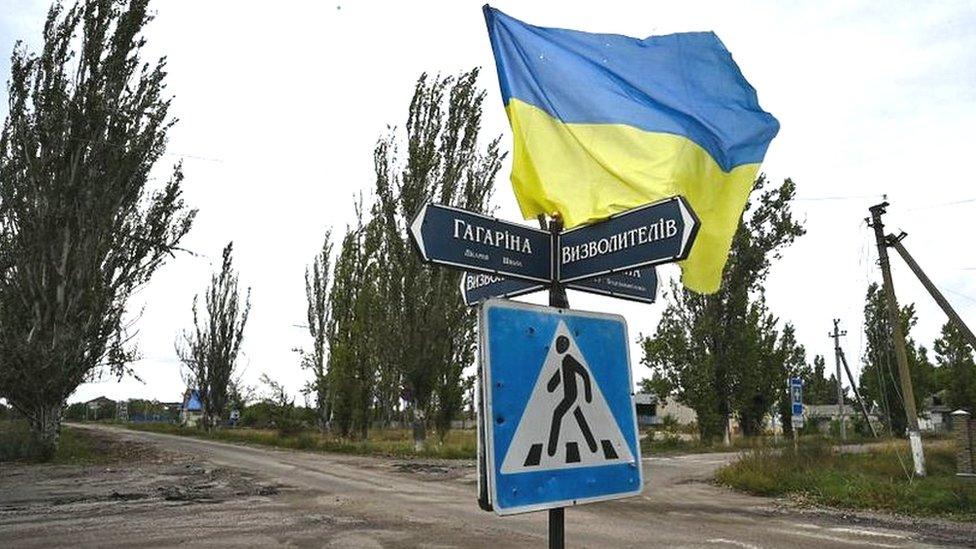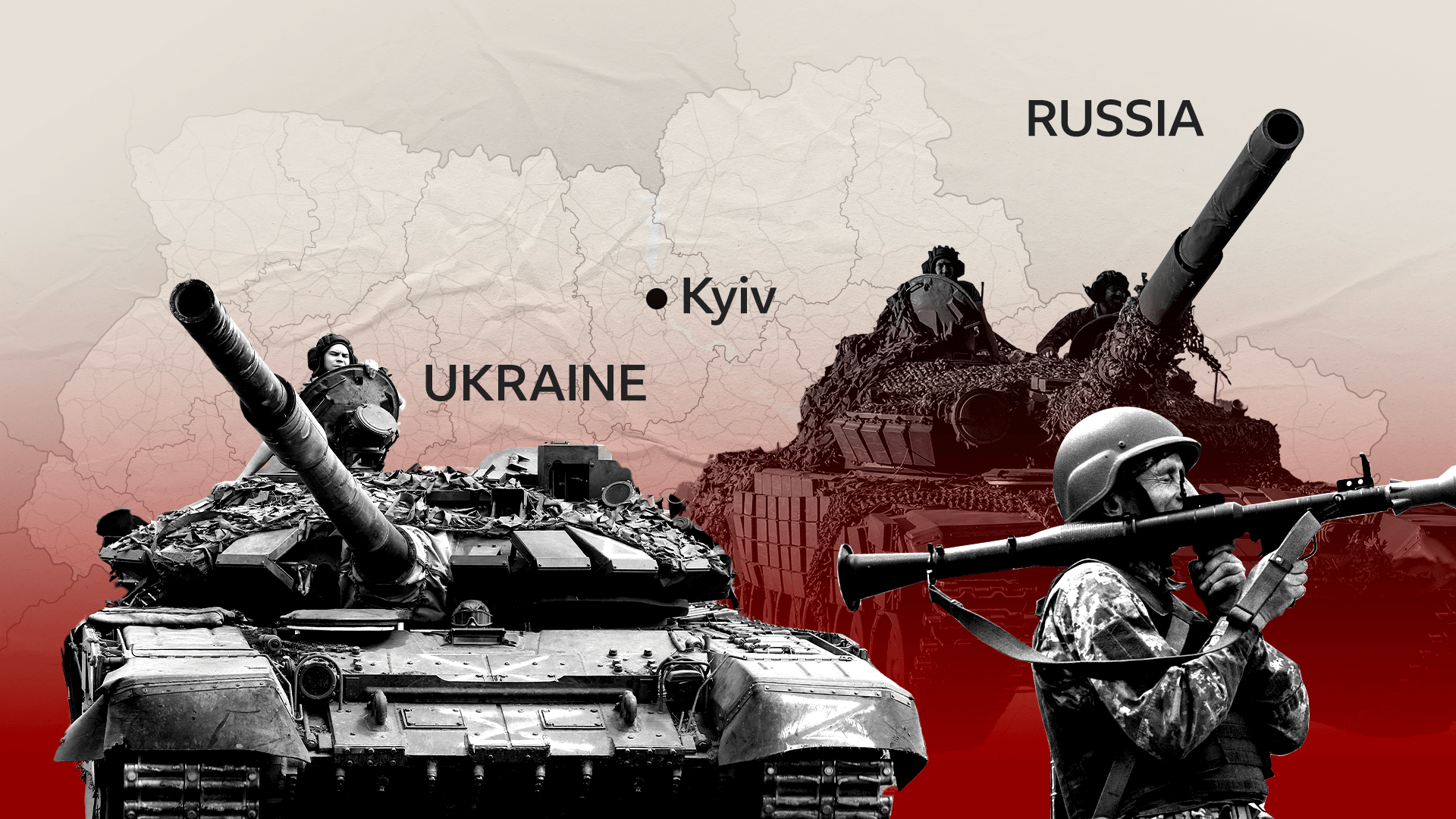Ukraine round-up: Putin claims parts of Ukraine and horror as rocket strike kills dozens
- Published
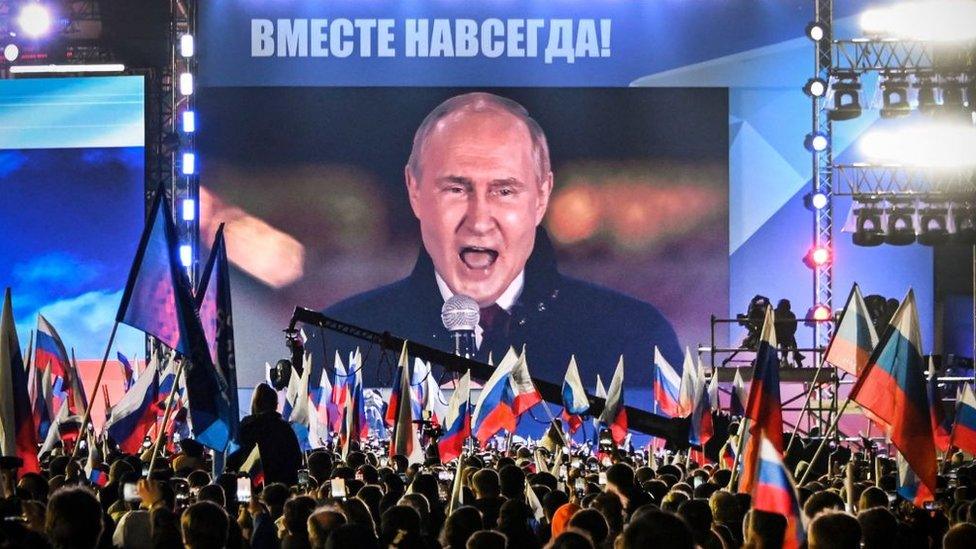
Vladimir Putin speaks to crowds in Moscow under a sign reading "together forever"
Russia's President Vladimir Putin announced that four areas of Ukraine were now "forever" Russian territory, after referendums in the areas which have been deemed a "sham" by Ukraine and its allies.
In an angry speech in Moscow filled with accusations against the West, he claimed that people in Russian-held Donetsk, Luhansk, Kherson and Zaporizhzhia regions had made their choice to join Russia.
But there was no independent monitoring of the hastily-organised votes and there were widespread accounts of people being intimidated into voting by armed soldiers.
Mr Putin was joined at the ceremony by the Russian-appointed leaders of the occupied regions and crowds later gathered in Red Square for a concert to mark the annexation.
Russia's move was widely condemned, with many countries increasing sanctions. The G7's foreign ministers described it as a "new low" and the US said Russia had shown "contempt for peaceful nations everywhere".
Ukraine's President Volodymyr Zelensky responded by applying to Nato for fast-tracked membership of the US-led defence alliance.
Ukrainian authorities also reported that their forces were close to re-taking the town of Lyman, which lies in a key strategic position in the east of the country.

Watch: 'Russia! Russia!' - chants end Putin's speech
Putin's bile-filled rhetoric
The BBC's Russia editor, Steve Rosenberg, described how the day's events in Moscow unfolded - and what it might mean for the future:
Vladimir Putin's decision to annex the four Ukrainian territories ("incorporate" in Kremlinspeak) is the Russian president's latest offensive in his battle with Ukraine and the West.
Through annexation, the Kremlin is trying to change the facts on the ground (at a time when Russia has been losing ground in Ukraine).
Mr Putin wants to present a fait accompli to Kyiv and to the West.
It raises the stakes considerably in the president's standoff with Ukraine and the Western world.
The Kremlin event was carefully choreographed for maximum patriotic effect: plenty of applause for the president from the invited audience; a stirring rendition of the national anthem; and Mr Putin and the four Kremlin-appointed administrators of the annexed territories clasping hands and chanting "Russia! Russia!" along with everyone in the hall.
But declaring "this is my land now" doesn't make it true.

What does annexation actually mean?


So Putin has declared four occupied regions of Ukraine "annexed", but what does this actually mean in practice?
Well, it's not clear, says the BBC's Europe digital editor, Paul Kirby.
Even Kremlin spokesman Dmitry Peskov was unable to define where Russia would draw its new borders in occupied southern Ukraine.
However, he did say on Friday that any strike on annexed territory would be regarded as an act of aggression.
Want to know more - including how Ukraine has reacted? Read Paul's piece here.

'We want to live the way we lived'
Just over the border from the occupied land claimed by Russia on Friday, Ukrainians are still trying to get on with their lives.
"We don't want that [Russian annexation]," Anzhela tells the BBC's James Waterhouse as she stirs batter in her home in Komyshuvakha, just 11 miles from Russia's new "border". "We want to live the way we lived. Everything was fine, everything was all right."
Others have fled back into Ukrainian-occupied territory, terrified they may be forced to fight for Moscow.
Anton Osenev said soldiers had twice arrived to try to make him fight against his own country before he and his young family decided to leave.

'It was all so very horrifying'
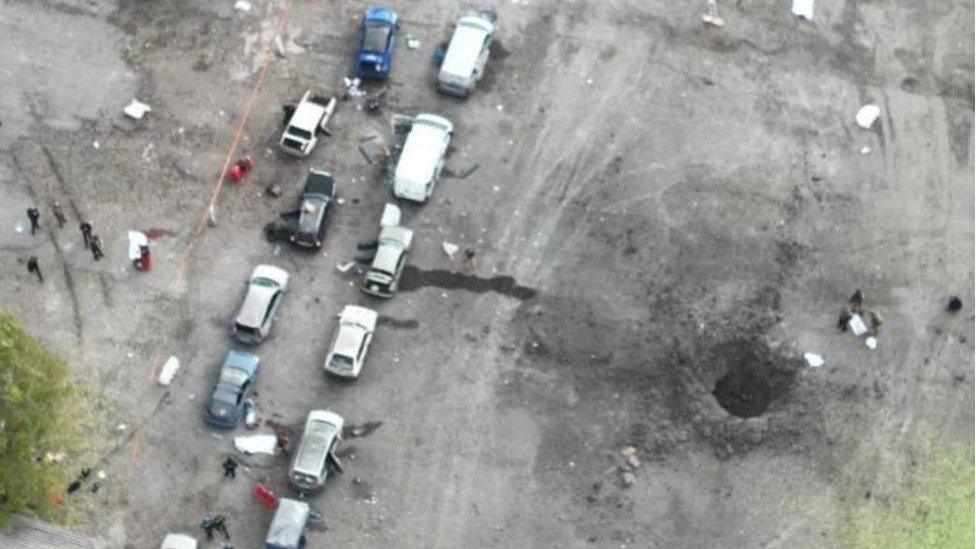
The convoy had planned to go to the Russian-occupied part of the Zaporizhzhia region
While eyes were focused on events in Moscow, the war continued in Ukraine - bringing more death and destruction.
Hours before the annexation ceremony, at least 30 people were killed in a Russian rocket strike on a civilian convoy in south Ukraine, local officials said.
Photos show a huge crater next to a row of vehicles in the city of Zaporizhzhia, while the BBC witnessed half a dozen bodies at the scene.
Viktoriia Yosypenko had been with her boss moments before the attack.
"I left the café to use the restroom when it happened. I ran back and tried to find her," she told the BBC. "The cafe was demolished, there were many bodies around. It was all so very horrifying."

Is Russia to blame for the Nord Stream gas pipeline leaks?
Watch: Footage from the Danish Defence Ministry of what it says is a gas leak from the pipelines
The US seems to suspect as much.
US Energy Secretary Jennifer Granholm told the BBC an investigation was being carried out into the cause of what she called "an act of sabotage", adding "it is highly unlikely that these incidents are coincidence".
No evidence about how the leaks happened has been made public.
Russia has dismissed suggestions that it was to blame - saying they were "stupid and absurd".

Ukrainecast
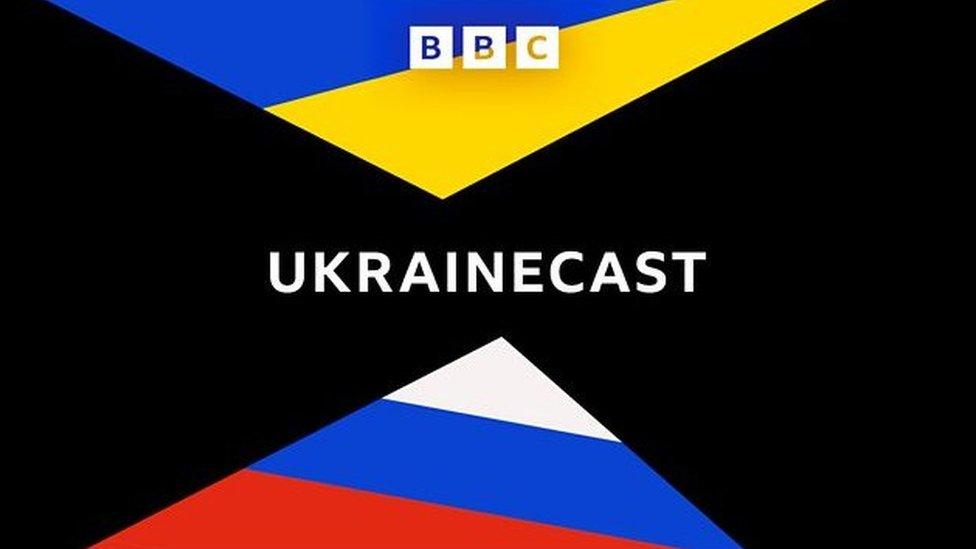
Vitaly Sevchenko and Victoria Derbyshire are joined by Moscow based political scientist Andrey Kortunov to unpick the events of the day and discuss what might happen next.

Related topics
- Published30 September 2022
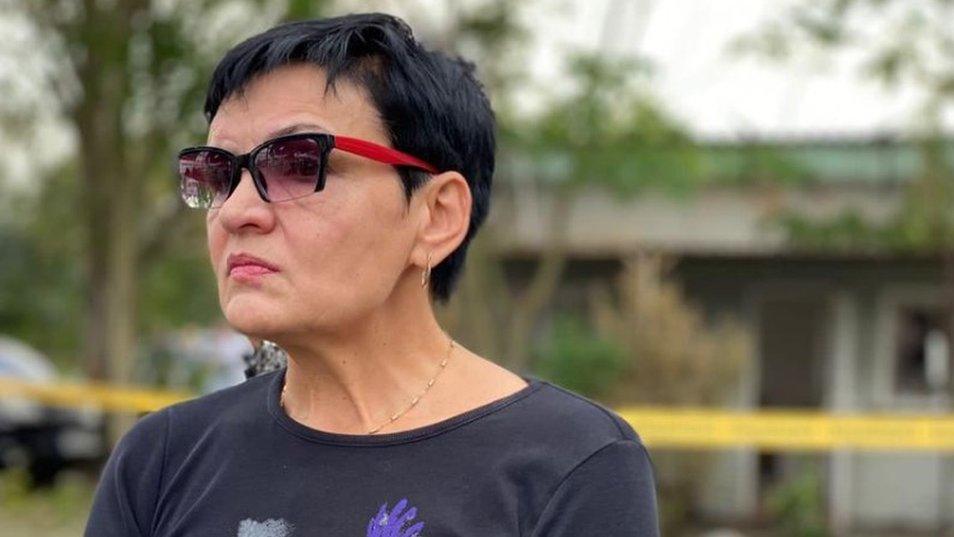
- Published30 September 2022
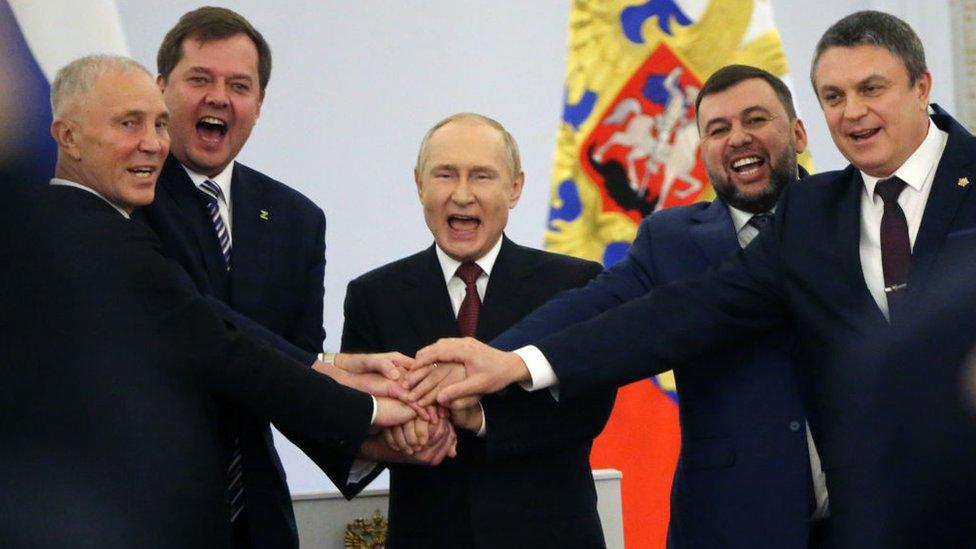
- Published30 September 2022
